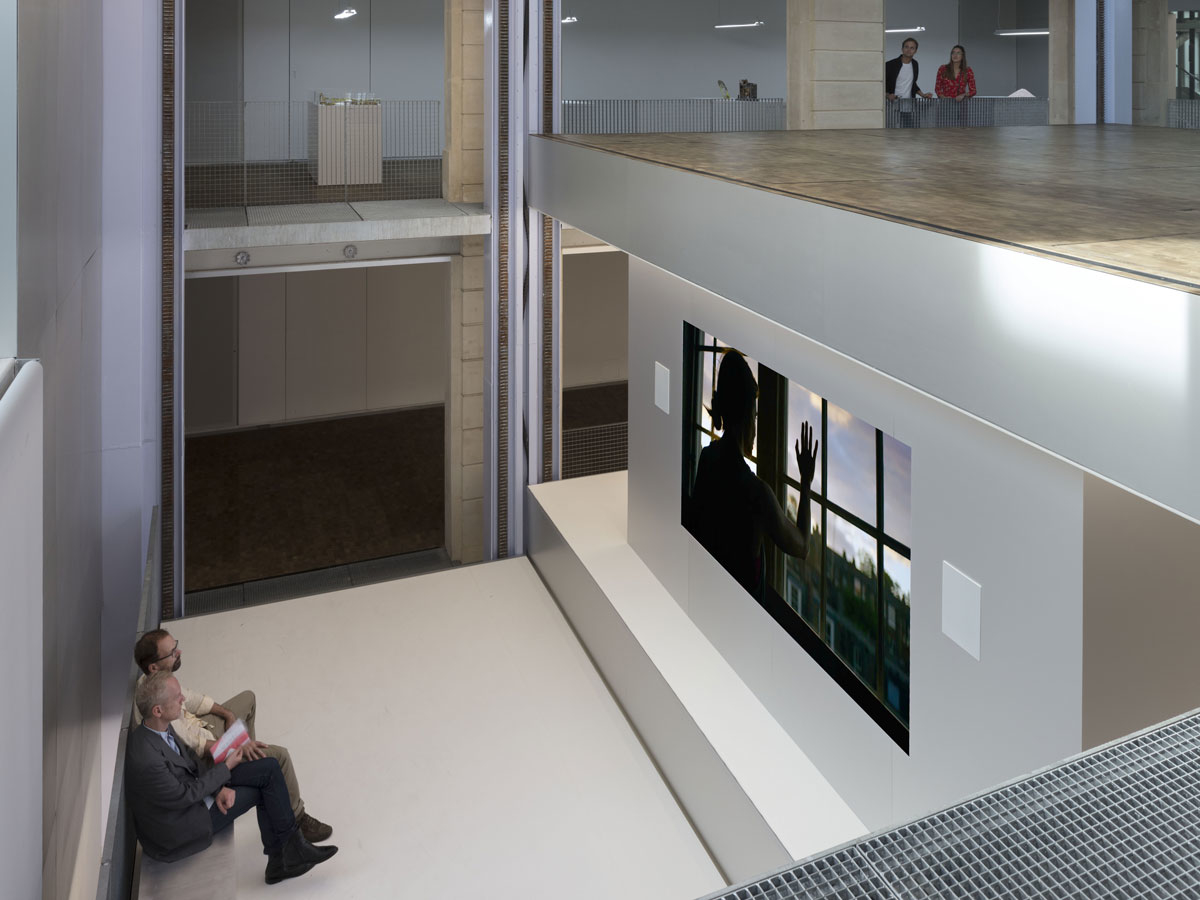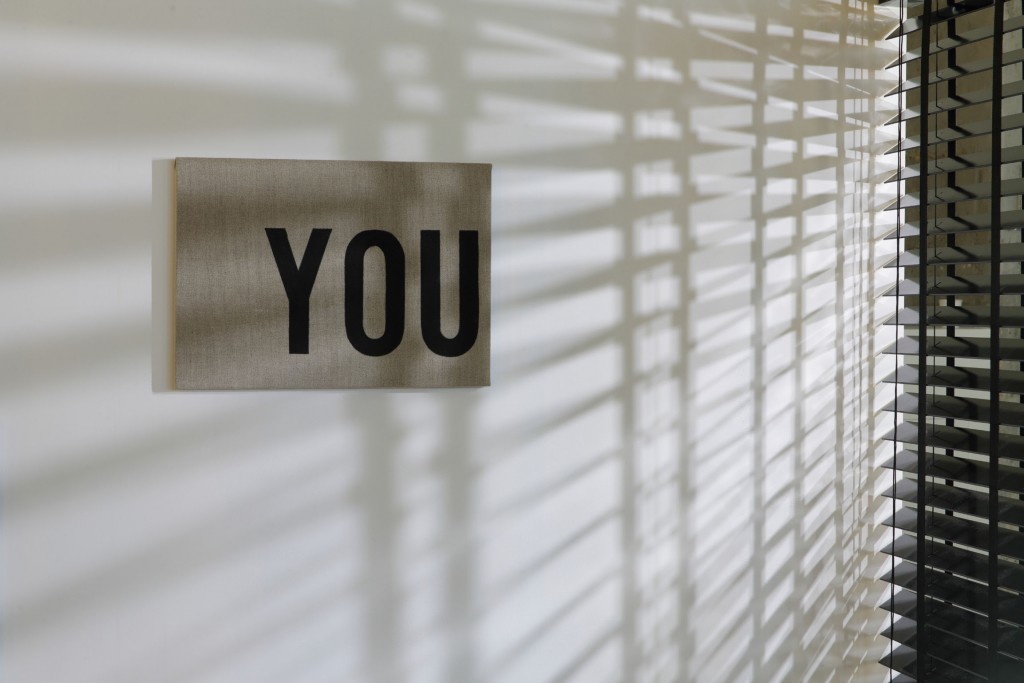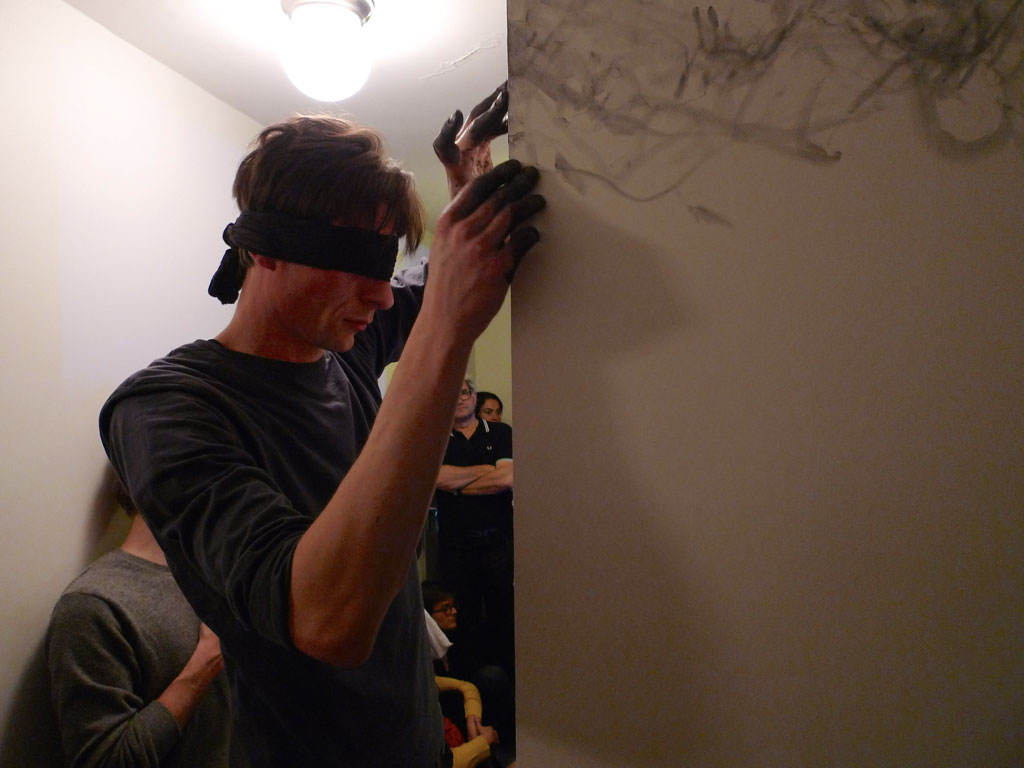EnsadLab Displays research group and ICCA Labex welcome Sylvie Boulanger (curator, founding director of the CNEAI in Pantin), and François Quintin (director of Lafayette Anticipations in Paris).
This is the last in a series of four meetings organised by EnsadLab Displays and the ICCA Labex, dedicated to new experimental contexts for art exhibitions. Exocène #4 will question the specific experimentation potential that large-scale institutions or projects are able to generate. How to engage critical activities in this dimension?
Tuesday January 15, 2019, from 6pm to 9pm
RSVP: facebook or displays@ensad.fr
EnsAD, 31 rue d’Ulm 75005 Paris – Room 308, 3rd floor
More information: www.displays.ensadlab.fr
Exocène
Series of meetings, EnsadLab Displays & Labex CISC research group
In the wake of counter-cultures, “do it yourself” and artist-run spaces, a large number of places and networks create exhibitions in circonstances that are exogenous to institutions. We are particularly interested here in exhibitions, rather than in production. These initiatives are part of a digital context linked to social networks and platforms such as third places. They draw an “outside era” where the investment of other spaces would reinforce the attempts to invent freedom of experimentation.
The four Exocène meetings welcome those in charge of places and facilities that create unique conditions for experimentation for exhibitions. Sometimes – but not always – conducted in precarious economies, they are often characterised by relations that are very specific to their territories. Conceived as an alternative to institutional mechanisms that have sometimes become less effective in their context, aiming to leverage the invention of public art conditions and practices, do these frameworks renew the potential of the exhibitions they host? What is the specificity of the relationships they establish with their environments and the public? What obstacles do they face? How to develop counterspaces while fighting for their necessary recognition?
Organized at Ensad, this program has been composed of 4 meetings bringing together two guests in dialogue with Displays research group and the public: Small is Powerful on October 18, with Juliette Fontaine (Capa Aubervilliers) and Julie Portier (La Salle de Bains, Lyon), Networked on November 14, with Lucie Orbie (50° North) and David Quilés Guilo (The Wrong Biennale), Playing Collective on November 29 with Clémence Agnez (Glassbox) and the &Nbsp association; (Clermont-Ferrand), and at last Size matters on January 15, with Sylvie Boulanger (CNEAI) and François Quintin of Lafayette Anticipations.
Talk #4 : Size matters
The CNEAI (Centre National Edition Art Image) is a national center for contemporary art which, for the past 20 years, has invited emerging or recognized artists who tackle social issues and seek to experience all fields of human activity. As a space that is open to the creation of communities, the CNEAI accelerates the projects of artists who develop new economic and cultural autonomies, within the framework of practices that are often collaborative and always of great variety: editorial, graphic, digital, social, writing, music, production, etc. practices. The center supports a cultural utility, and a service to the public, and invents new models of production and transmission of artistic forms that challenge disciplinary categories and involve all audiences in the artistic projects, from meeting the artist to presenting the works. Headquartered since 2017 in the “Magasins généraux” – a warehouse complex located on the Canal de l’Ourcq, in the northeastern Parisian suburb of Pantin – the CNEAI has launched a new creation-, transmission- and research program within the framework of the Greater Paris project, with some fifty national, international and local partners. It also organizes in situ and of-site exhibitions, runs a program called “inhabit the exhibition”, offers residencies, and spearheads research projects and publications.
Lafayette Anticipations is a public interest foundation, which is structured around its production activities and the support it provides for contemporary creation. It acts as a catalyst that offers artists unique tailor-made means to produce, experiment, and exhibit. It marshals actions conducted by the Galerie Lafayette’s corporate foundation and by the Moulin family’s endowment fund – two public interest corporations created in 2013 by the Galeries Lafayette group and its family-owned holding – in support of contemporary creation. Since its opening on March 10th, 2018, the Foundation is the first multidisciplinary center of its kind in France. In the 19th century building that it occupies in the Marais, which has been renovated by Rem Koolhaas, an exhibition project will present new works by international creators from the fields of contemporary art, design and fashion. Between 2013 and 2017, while its spaces were being rehabilitated, Lafayette Anticipations investigated the Foundation’s budding identity, through invitations to produce pieces, workshops, partnerships, and by providing direct support to creative production. This preliminary program was revealed in events organized by Lafayette Anticipations itself (Les Prolégomènes, Venir Voir Venir, Faisons de l’inconnu un allié, Composer les mesures de son espace) and through projects conducted with partner institutions (Centre Pompidou, National Archives, Kunsthalle Basel, MoMA PS1, Performa, New Museum…). Lafayette Anticipations also supports contemporary creation through the Moulin Family Endowment Fund, which backs public interest artistic projects and has been committed, since its creation in 2013, to expanding and enhancing its collection though its acquisition policy.
Organisation
Led by Thierry Fournier and J. Emil Sennewald, Displays is a research group of EnsadLab, the first in France dedicated to practice-based research on exhibitions. It aims to question and experiment the forms and challenges of contemporary exhibitions: transformation of the objects on display (in a broader sense), roles, spaces and temporalities of exhibitions, critical positioning towards cultural powers and industries. Its activity consists of two components: a research through exhibition approach, which deploys exhibition situations as moments of research, and public exchanges with the actors in this field (conferences, meetings, publications). Public exchanges deliberately adopt very specific protocols and scales aiming at modulating the forms of interaction in order to adapt them to the topics being discussed and their related working methods.
The ICCA Laboratory of Excellence (Cultural Industries and Artistic Creation) is an interdisciplinary research laboratory focused on the practices and markets of culture, art and leisure. Created in 2011, ICCA’s main objectives are to define new economic and regulatory models, study new uses and emerging markets and transform legal frameworks, both in traditional sectors and in the digital world. ICCA brings together departments from several universities in different disciplines (sociology, economics, law, communication, educational sciences, design). ICCA is also a forum for dialogue with professional organizations and industrial actors in the cultural and arts sectors. ICCA is a research program funded by the “Future Investment” program.


